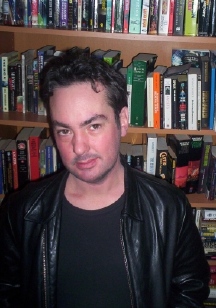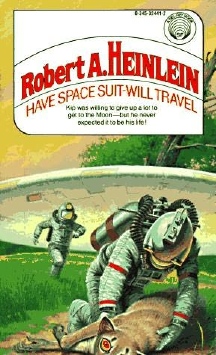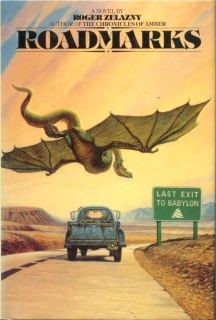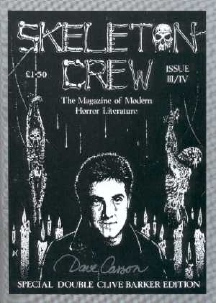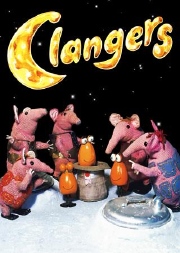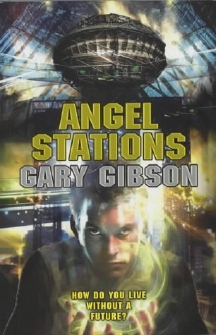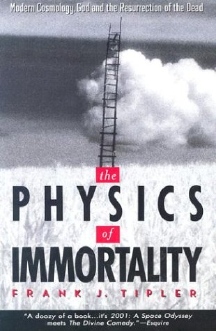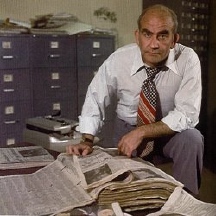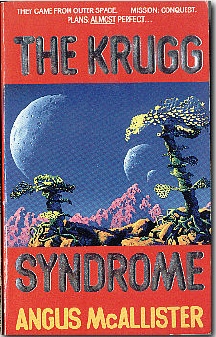"Go For the Big Issues"
An Interview With Gary Gibson
The Agony Column for October 25, 2004
Interview Conducted by Rick Kleffel
An Interview With Gary Gibson
The Agony Column for October 25, 2004
Interview Conducted by Rick Kleffel
RK: Gary, could you give us a bit of your current background? Your back-of-the-book resume lists graphic designer and tantalizingly, "previously a magazine editor". What magazine did you edit? What kind of graphic design are you currently doing? GG: I used to be involved in the small-press comics and sf scene in the early Nineties, and that led to a course in professional desktop publishing and design. I subsequently fell into professional magazine editing mainly by accident. A local publishing company paid for reviews for their music magazine, but it was pretty amateurish-looking, so I ended up becoming their layout artist instead. I later took over writing, editing, and designing a disability magazine called Special Needs for the same company, until they went bust a couple of years ago. That was a good learning experience, and good fun as well. Since then I've been freelancing part-time for a couple of design and print businesses. By that time I'd realised all I really wanted to do was write, regardless of all the voices of practical reason in my head telling me to aim for a proper career. I put the writing first instead, and it turned out to be the right decision. RK: When and why did you first start reading for pleasure?
Otherwise, I think for anyone born in the Sixties, a big motive in reading sf was the Apollo space programme and later the Voyager probes, and that sense of being a witness to enormous historical strides. In that respect, sf reflected what appeared at the time to be an inevitable future history. JG Ballard might think it's all over, but to my mind the space age hasn't even really begun. Bert Rutan's privately-sponsored sub-orbital flight may turn out to be of greater historical significance, in practical terms, than Apollo. RK: What drew you to genre fiction and science fiction? GG: The sense that the future was an adventure waiting to happen, and that it was immediate and involving enough we were all participants, or at least witnesses to something monumental. There was an excitement and adventure to the field that nothing else seemed to offer. It dealt in enormous ideas that seemed to question every assumption we had about the way the world worked, and I didn't find that in other forms of literature. RK: What kinds of genre fiction did you first read?
One thing I never got into was high fantasy, the appeal of which continues to elude me. On the other hand, Moorcock's Jerry Cornelius books obsessed me in my mid-teens, so probably it's a question of what you mean by 'fantasy'. Thinking about it, maybe the kind of fantasy that appealed to me was the postmodern stuff – playing with pop-culture tropes and obsessions, in the way that the Cornelius books did. There's a certain kind of sf book that always gripped me, but I've never quite figured out what it is they have in common that might give me a clue as to what it is they share that so fascinates me. It's not the most obvious stuff; I'm thinking books like Roadmarks by Roger Zelazny, Roadside Picnic by Arkady and Boris Strugatsky, The Wanderer by Fritz Leiber. I read these all in my teens, and in some weird way they had a collective effect on me. Maybe it's a sense of mystery, that sense of weird, lonely emptiness you could imagine if you were driving on your own through a desert, and you stopped, thinking you'd heard voices, but really it was just the wind. Probably. These days, I'm pleased by the evolution of the 'new' space opera, which takes the best bits from hard sf and mixes it in with the experimentation and attention to character and stylistics that grew initially out of the New Wave, Linda Nagata for me being a good example. RK: Did you read current works first or the classics? GG: Both, since my Dad worked on a local newspaper, and shared a desk with the book reviewer. None of the sf that came in ever, ever got reviewed, so me and my older brother used to get handed shedloads of the stuff on an almost weekly basis. It's a shame I don't still have a lot of those books, although I certainly have fond memories of many of them; but if I'd kept them, I'd need a second house just to shelve them all. RK: When did you start writing fiction for others to read? GG: I started getting moderately serious when I was about fourteen, partly through boredom, plus I was quite ill at times (chronic dermatitis), and it took my mind off of it. That faded by my late teens, when I discovered rock music and started to learn the guitar. The story of how I came back to writing after several completely wasted years trying to convince myself I might have a career in the music industry would fill a book all in its own, but in the meantime I'd been keeping my attention on the field as a reader, picking up not only on Interzone and Asimov's, but also on some of the small press publications coming out of the States like New Pathways and SF Eye. RK: How was it received?
RK: Tell us a bit about your experiences writing short fiction, if you had any. GG: Apart from the piece in Skeleton Crew, I had a couple other stories published over the next ten years. That's only really a tiny fraction of what I wrote during that period, but most of that was 'practice' writing, that vast body of verbiage you have to go through before you figure out how to be a good writer. GG: The short version of 'Touched by An Angel' in Interzone (March 1994) got good reviews in places like Locus, and an honorable mention in the subsequent Dozois Year's Best, which spurred me on to write a novel-length version. The Interzone story actually started out as an outline for a book – it's really a 100k novel compressed into three thousand words, but it works, and I'm quite proud of it. It can also be found in the Shipbuilding anthology, which did the rounds at the '95 Worldcon in Glasgow. It got reprinted again in an Eastern European magazine called, I think, Procynski I Ska. RK: How does your work in graphic design affect your writing? GG: It's primarily a support mechanism for the writing career, kept to deliberately part-time hours. The pay is lousy, but the hours are perfect, and it's usually only a couple of hours a day, which leaves me the rest of the day free to work on books. I'm at the point where I've realised the more ambitious projects I have in mind really demand full-time writing, but that's unlikely to happen until I'm earning more from it than I currently am (if ever!). RK: How did you first start creating the universe that readers encounter in 'Angel Stations'? GG: It started out with a couple of separate ideas; The 'Hiatus' in 'Angel Stations' was taken from the '94 Interzone story. The memory books started out as a separate idea, then got wrapped into the Angels stuff. I was aiming for something kind of baroque and widescreen. RK: What would you count among your influences as a writer -- for example, movies, video games, novels, short stories, television shows? Reality itself?
Curiously enough, if I really think about influences that might have directly inspired me to be a writer, I'd cite 'Lou Grant', which completely turned me onto the idea of journalism as a career when I was a kid. The step from wannabe-journalist to potential novelist isn't that great. RK: 'Angel Stations' is quite complex and very dense. GG: That's a reflection of a lot of ideas getting pumped into one book. I did originally think of doing Angel Stations as two, possibly even three books, since it felt like there was enough for that. So you could perhaps accuse me of throwing in everything but the kitchen sink, but there was a lot of stuff I wanted to say, and get in, and that contributes to the narrative's density, as does eyeball-kick stuff (as I think of it) like the memory books. RK: What sort of reaction were you hoping for from your readers?
RK: Were you looking to create a sort of "culture shock" in your readers as they experience the human civilization you describe? GG: Not as such. I'd hate anyone to think Angel Stations is anti-technology, though to my horror one or two people interpreted it in precisely that way. Technology is our salvation, regardless of how unwisely we may sometimes use it. If the society in Angel Stations is anything, it might be an unconscious reaction to the kind of society you see in something like Star Trek, that awful, bland, executive-lounge future. RK: In some ways, your alien civilization is more comprehensible than the humans. GG: Primarily because their survival needs are more basic and direct. Till the fields, bring in the harvest, feed the cattle, fight your enemies. Given limited technology or science, a society like that of the Kaspians might well seem more comprehensible to most of our ancestors than that even of our own present-day civilisation. RK: You reveal your universe quite slowly in 'Angel Stations'. GG: 'Angel Stations' is set up a bit like a mystery, in that there are clues to what's going on, and what the story is really about, scattered throughout the narrative. The other approach is to let the reader know the basic set up right on the first two or three pages – Hyperion by Dan Simmons comes to mind – but in this case, I needed 'Angel Stations' to be more like a time-release capsule, otherwise the level of info-dumping in the opening pages might have been enormous. RK: How did you create this novel in terms of the actual writing process?
RK: Did you outline the novel before writing it? GG: I know some people like Iain Banks can develop a complete, blow-by-blow synopsis of the story before they actually sit down to write it, and I admire that kind of approach, but I can't do it. I've tried, but I can't. However, I usually start with a back story, then I figure out the beginning, and lastly I have some idea of how it might end. Then it's a question of figuring out what goes in between. I have a sort of mental roadmap of the story, so I have a rough idea of the direction I want to go. For instance, I just recently finished my second book for Tor UK, Against Gravity, and about ten days into starting it I created a series of flashbacks, showing how the characters came to be where they are. I didn't plan to do this: it was pretty much a spontaneous decision. But it felt right, and now it constitutes a substantial part of the narrative. RK: Did you question yourself about the number of characters or themes in 'Angel Stations'?
RK: Do you read when you're writing a novel? What and why? GG: I'm increasingly reading a lot more for research, which I used to be terrible at, but am getting much better at now. I read Frank Tipler's The Physics of Immortality while I was writing Against Gravity. Now I'm reading frankly shitloads of books for research, everything on histories of the CIA to the influence of the occult on Modern Art, to achievable interstellar propulsion systems. I guess it's all part of becoming a better writer. Every time you start something new, you want to aim just that little bit higher, and often that means research. Apart from that, I don't go out of my way to read any particular author for inspiration, though sometimes I'll go hunt out a specific book or story, since figuring out how that author handled a particular situation or put across a particular piece of information can help if you're stuck. RK: Did you write portions and then get feedback, or did you write the whole narrative and hand it off to an editor or first reader? GG: For about fifteen years, pretty much everything I've written so far went through the Glasgow SF Writer's Circle. Sometimes it's a portion, but increasingly it's the whole thing. Otherwise I might show a first chapter to someone, just to see the kind of 'feel' they get from it. RK: Did you have a contract when you were writing it?
RK: How did you create the actual prose? Do you have an idea, an atmosphere, another writer in mind? Your style is dense and intense and condensed. Do you write a lot more than we see here then pare it down? GG: Some of that condensation is down to the editor, who's good at recognising that those enormous internal monologues on religion and human nature are sometimes inappropriate in the context of somebody trying to get the hell out of an exploding spaceship. RK: Did you seek to have portions published in the genre press? I thought about it, but there isn't anything in Angel Stations that really strikes me as something that would operate as a self-contained narrative. Same for Against Gravity. If there had been something suitable, I might have gone for it. I've had an idea for a short story based on the latter, but I'm notorious for coming up with ideas for short stories and not getting them written. Actually, that describes quite a lot of people I know. RK: Could you talk about selling the work once it was completed? Did you find an agent or did you find an editor at a publisher?
RK: Could you talk about your experience with Tor UK? GG: I got the deal at just about the same time that the Tor UK imprint was created by Pan Macmillan, so I had an invite down to the launch party in London, which would have been something else, given some of the people I found myself sharing an imprint with – particularly Jonathan Carroll. Except I was skint, so I couldn't and didn't. But it's sometimes a little scary seeing who I'm sharing an imprint with. RK: What are you currently reading, and why? These days, do you read genre fiction? GG: I split my time between genre fiction and otherwise, mostly, non-fiction. In genre terms, the guys who do it for me tend to be the likes of Neal Stephenson, Dan Simmons, Banks, Vinge, Shepard and Robinson. I just finished Pattern Recognition, and I'll be working my way through Simmons' Ilium sometime soon, as well as Charles Stross's Singularity Sky. I read his 'Atrocity Archive' in Spectrum SF, and was entirely blown away by it. Otherwise, Hunter S. Thompson is a big favourite of mine, and I recently finished Michael Chabon's Wonder Boys and also enjoyed Cavalier and Klay. Glenn David Gold's 'Carter Beats the Devil' blew me away. I've also been reading Who Pays the Piper?, a history of the CIA's involvement in cultural propaganda during the Cold War. Sounds dry, but it isn't. RK: Could you talk about your upcoming publishing projects? Another novel? Short stories? Screenplays? GG: My next book is Against Gravity, and that's out in Summer '05. It's about people who've been forced to undergo radical experimental surgery while held as political prisoners in a future, dystopian America recovering from the effects of runaway environmental decline and nuclear terrorism. It also deals with Tipler's ideas concerning the Omega Point, and is set maybe a hundred years from now. That's just been completed,so there are two new projects currently in the pipeline. One is tentatively named Things Unseen, and ties together the modern art movement, theosophy, mid-70's New York punk, remote viewing experiments, quantum physics, and the CIA. 'Who Pays the Piper' is an influence on this. The other one is still a bit nebulous, but I'm basically thinking about maybe up to a couple of linked books about interstellar colonisation. Hoary old theme, yes, but I'm interested this time in real-world applications of known science, and the way politics and human need drives it. Think Red Mars, but aiming for another solar system entirely. If it has a theme, it's the idea that the only way the human race can overcome the drives that constantly threaten to destroy it is to effectively become something other than human. I'm trying to find a balance, basically, between the more space-based stuff, and stuff that's still genre but a lot closer to home. RK: This all sounds very intriguing. We will be getting another visit to the universe of Angels Stations eventually, won't we? GG: Well ... maybe, eventually. At the moment, to be honest, I kind of feel like I've 'done' the Angel universe, so no immediate plans. I've considered reworking Touched by an Angel, since it is set in the same universe, but I keep getting assailed by other, totally cool ideas that get me all excited, and it's impossible to ignore them. On the other hand, if I thought there was a serious demand for a new Angel book, I'd definitely think about it as a 'sooner' rather than a 'later'. RK: What do you want your readers to know? GG: That I weigh at least ten pounds less than any photograph appears to suggest. RK: Any recommendations for the readers?
Gus was on a verge of releasing a new novel until his publishers, Big Engine, crashed and burned. Hal Duncan, another writer from Glasgow, recently also signed a deal for a significant amount of money, also with Tor UK. He writes what I guess you could call experimental fantasy, influenced by William Burroughs, James Joyce, Moorcock and Delany. His first book, Vellum, is being launched at the Glasgow Worldcon next year. If people want to know more about me, they can find my blog at whitescreenofdespair.blogspot.com. RK: Gary, thanks for speaking to me -- and for your fine first novel. |
